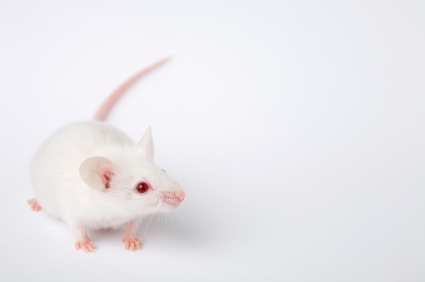Information from Environmental Experiences Can Be Passed on in Dad’s Sperm
Contrary to all common sense, researcher Brian Dias showed that when rats that were future fathers learned to associate an odor with a shock, this learning could be passed on to the next generation when the father mated with a female rat that had not learned the same association.
It turns out that the next generation of rat pups shows increased behavioral reactivity to the odor in a process different from the fear conditioning they might exhibit if they learned to avoid the odor through their own experiences.
Presumably, the pup is somehow programmed through an epigenetic modification of the father’s sperm to grow more neurons from the nose to the olfactory bulb that specifically react to the odor its father feared, and not to other odors. Miraculously, when the second generation pup grows up and fathers a third generation pup, the new pup also shows increased behavioral sensitivity to that specific odor. How the odor information from the first generation is represented in the fathers’ sperm and passed on to their descendants is still a complete mystery.
There are also new data that a father rat fed a diet deficient in folic acid (vitamin B9) will sire offspring with more congenital malformations. Additionally, an obese father rat fed a diet that includes extra fat calories will sire pups that become obese as adults even when fed a normal milk diet from a svelte mother before weaning and then fed a normal diet after weaning.
Mothers’ behavior usually gets most of the credit and/or blame for her children’s behavior, but now it looks like fathers’ diet or behavior (even before they have children) may have lasting consequences for their offspring.


